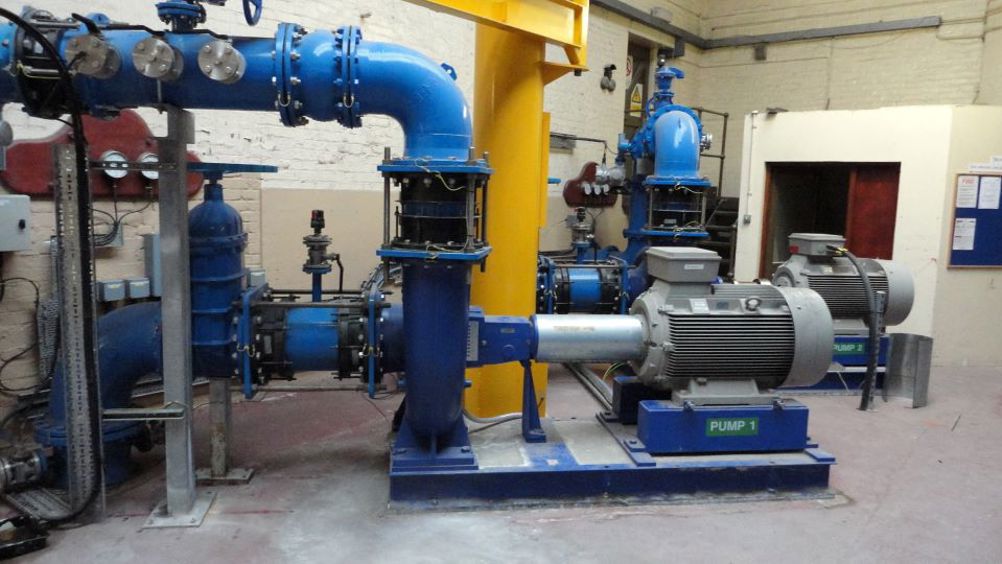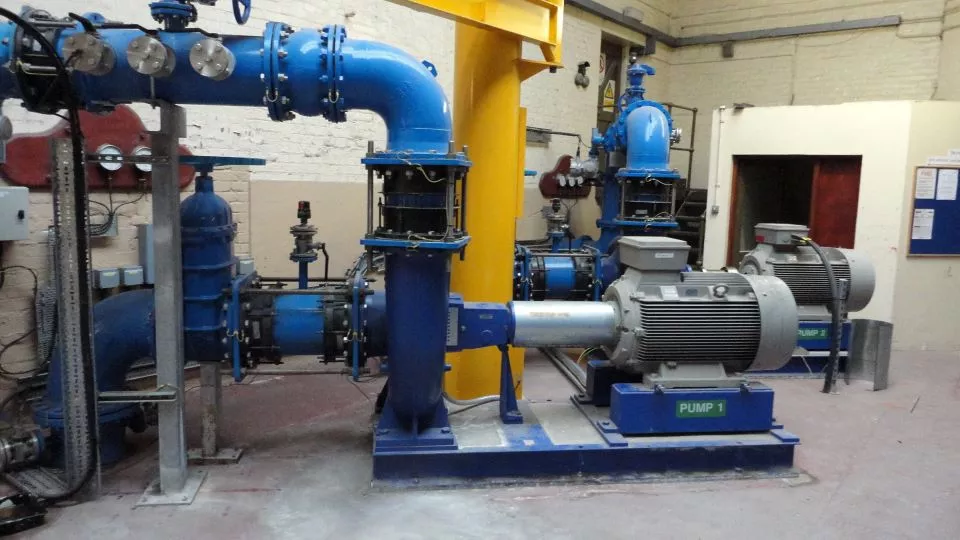With water companies setting the bar for other infrastructure, utility and energy-intensive industries by aiming to achieve net zero carbon emissions by 2030, Andy O’Rourke, senior consultant at BGEN, explains the role control optimisation projects can have in helping the industry meet this ambitious target. He also gives examples of how Anglian Water has achieved significant carbon reduction savings in the field through optimising the control of pumping systems.

Pumps are fundamental in the water industry – Image: BGEN.
The race to 2030
In November 2020, UK water companies unveiled a ground-breaking plan to deliver a net carbon zero water supply for customers by 2030 in the world’s first sector-wide commitment of its kind1. Water UK has estimated this could save ten million tonnes of greenhouse gas by reaching net zero two decades ahead of the UK Government’s legally binding target of 2050.
The water industry is an energy intensive industry, with energy required to move and treat billions of litres of water per day, with each person in the UK consuming on average 142 litres1 per day. To meet the 2030 target, water companies are examining every facet of their operation to identify emission savings. This includes switching to low emission vehicles, realising water and energy savings, through to embracing renewable power and tackling process emissions.
Consequently, water companies are embracing new strategies to tackle leakage and examining their entire operation to identify energy saving opportunities. Pumps, an emitter of emissions, are one such area where water companies are looking for efficiencies and process improvements.
Pumps are fundamental in the water industry. They regulate the pressure in pumping mains to ensure water reaches its final destination, whether that be a storage reservoir or direct to customers. Pumps also remove and enable treatment of wastewater.
One of the key ways to improve the efficiency of pumping systems and reduce energy consumption is through effective control optimisation. An intelligent control system will pump only the required water when needed, and at the optimum pressure. This steady approach will also improve the treatment process and resilience through reduced leakage and bursts.


